Washington, D.C. – Last week, Senators John Curtis (R-UT) and Ruben Gallego (D-AZ) introduced the bipartisan Water Infrastructure Modernization Act to increase the use of smart water technologies. The legislation provides $50 million in grant funding for community water systems to purchase and implement new water technologies, including those that can identify water loss, examine pipe integrity, detect leaks, prepare for severe weather, innovate water storage systems, and more.
“Across Utah and the West, communities face real challenges with aging water systems, drought resilience, and growing demand,”said Senator Curtis. “The Water Infrastructure Modernization Act empowers local leaders to adopt next-generation technologies and reflects our pioneer values of innovation, thrift, and stewardship, and puts modern tools in the hands of those closest to the land.”
“In the West, we know that every drop of water matters,” said Senator Gallego. “By investing in the latest technologies, we can make our water systems more efficient – saving communities water and money.”
Support for the Water Infrastructure Modernization Act:
“We strongly support Senator Curtis’s efforts to modernize the performance of wastewater treatment infrastructure through the use of intelligent/digital technology. This bill will provide a great benefit for Utah. A few years ago, CVWRF started the Digital Water committee which is part of the Water Environment Association of Utah. At CVWRF, we already have many real time sensors and instruments that monitor our processes and feed data into the supervisory control and data acquisition (SCADA) system that automates control of the plant. The topic of intelligent water infrastructure is extremely pertinent for us as we are now significantly increasing the number (by around a factor of 10), variety and sophistication of the sensors and the control software we use. This work is being implemented as part of the redesign and construction we are currently undertaking to improve our treatment facilities to lower costs and improve the quality of wastewater we discharge into the Great Salt Lake. We are also starting to use this information for asset management such as triggering maintenance events based on sensor data and not just a simple maintenance schedule. We are also implementing digital twin software models of our process which use real time data and simulate the operation which will allow us for example, to predict the outcome of process changes we want to make prior to implementing them in our physical facility.”Said Central Valley Water Reclamation Facility General Manager Phil Heck.
“Emerging smart water technologies hold the potential to help water systems identify trends in water use, detect potential infrastructure failures before they happen, and more efficiently manage water resources overall,” said the Association of Municipal Water Agencies. “However, start-up costs for individual water systems can pose a challenge that discourages water systems from utilizing the full potential of these technologies. AMWA appreciates Senator Gallego’s leadership in advancing adoption of innovative technologies to enhance water system operations, and we look forward to working with him and other water sector stakeholders on this important issue.”
“The California Association of Sanitation Agencies (CASA) applauds the bipartisan introduction of the Water Infrastructure Modernization Act of 2025. This legislation will help clean water agencies fulfill their responsibilities of protecting public health and the environment, by ensuring agencies have access to and are able to adopt the advanced water treatment technologies that are required to meet today’s increasingly complex water quality needs,” said Adam Link, Executive Director, CASA.
“As a U.S.-based water solutions company, Xylem applauds Senator Gallego and Senator Curtis’ leadership in introducing the “Water Infrastructure Modernization Act,” a vital step towards modernizing our nation’s water systems. Communities across the country face growing challenges posed by aging infrastructure, drought, and rising input costs. Smart water technologies can improve efficiency, extend infrastructure lifespans, and help keep water safe, affordable and reliable. We look forward to working with Senator Gallego and Senator Curtis to ensure all communities are empowered be more water-secure,” said Joshua Mahan, Senior Director, Government and Industry Relations, Xylem.
For bill text, click here.
